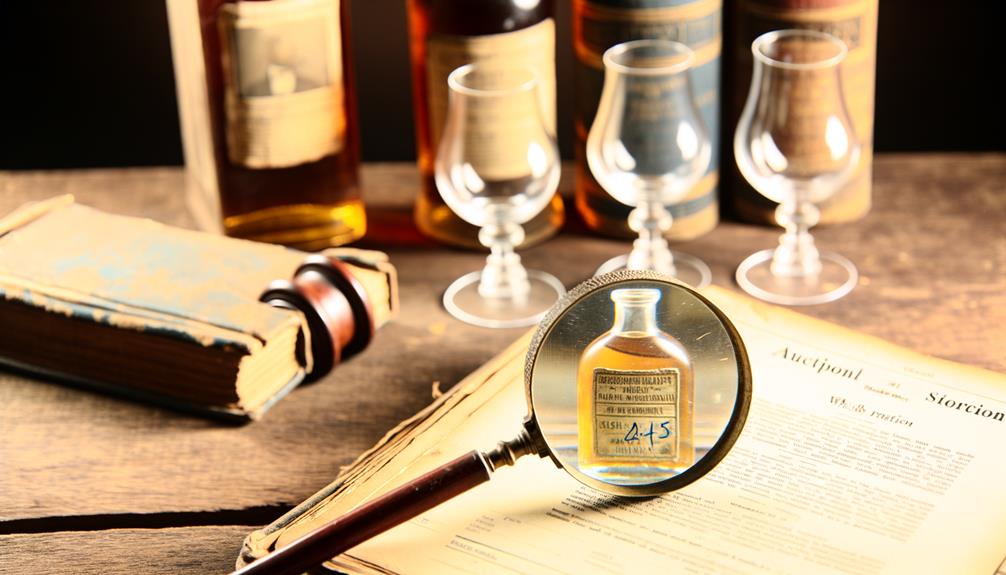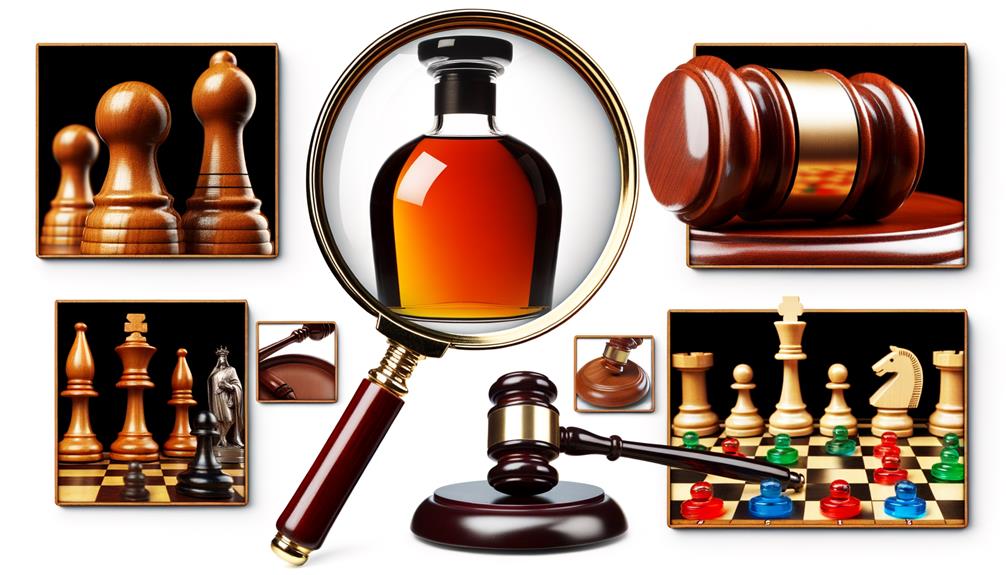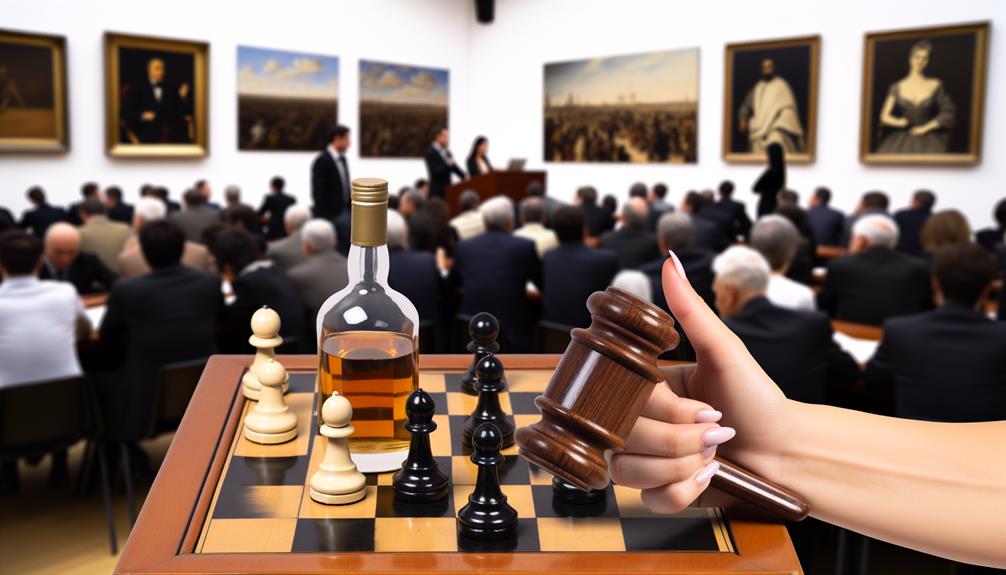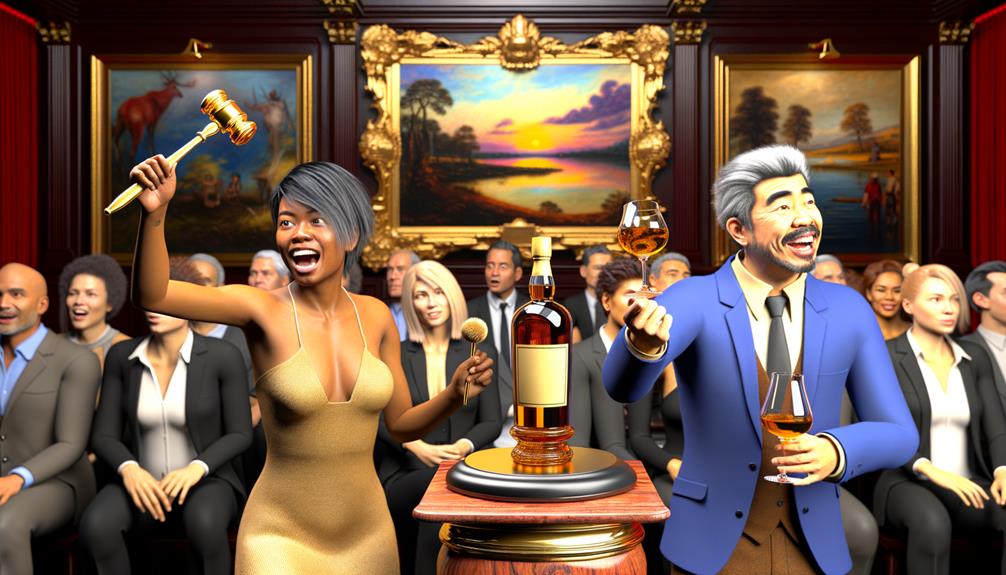As a devoted fan of fine whisky, I’ve spent hours exploring the fascinating realm of whisky auctions. This journey through the world of golden spirits has taught me a lot about the tricks of the trade that can give you an upper hand against other bidders. It can be intimidating to dive into these energetic sales, but with the correct tactics, you can secure some outstanding deals. I’m here to offer some knowledge that could change the way you approach auctions, leading to more wins and making those sought-after bottles within your grasp. Want to learn more? Let’s get started.
Understanding Whisky Auction Basics
Jumping into the world of whisky auctions means getting a handle on some key details. For instance, auctioneers like Georgia Porteous of Bonhams in Edinburgh collaborate with experts to assess and catalogue bottles. Likewise, online platforms such as Whisky Auctioneer have simplified the buying and selling process. As someone who’s actively involved, I buy and sell, often swapping out bottles that don’t quite hit the spot for me to afford those that really tickle my fancy.
In the capable hands of experienced auctioneers at traditional auction houses, my whisky bottles are transformed into sought-after, catalogued treasures. The insight of these experts helps to ensure my whisky bottles are given accurate price tags, making my involvement in whisky auctions smooth sailing.
Platforms like Whisky Auctioneer have brought a fresh perspective to the whisky auction industry. Their easy-to-use interfaces obliterate any geographical hurdles, letting me place bids from the snug comfort of my own home. With just a few mouse clicks, I’m able to browse through a vast range of bottles, from the elusive to the well-known.
Of course, the journey hasn’t been without its bumps in the road. The recent trade dispute between the EU and US, for instance, led to tariffs that affected Scotch whisky sales. But every cloud has a silver lining. For me, these tariffs paved the way for me to try out brandies, cognac, and Armagnac.
Researching Before the Auction

Buying and selling at whisky auctions may look simple, but it’s the in-depth research before the auction that often shapes the winning strategy. I can confirm from my own story, to get your hands on rare bottles, you need to deeply explore the specifics of each auction site, study past patterns and current prices, and also check out the condition of the bottle you have your eyes on.
It’s really important to ask for a condition report from the auction house. This report provides a detailed analysis of the bottle’s condition, including any possible flaws that can affect its value. But, the bottle isn’t the only thing to think about. You should also consider other factors such as auction house fees, VAT, shipping, and insurance costs. These extra costs can dramatically alter your budget, so you need to include them when planning your bidding strategy.
Moreover, you should set a maximum budget for each item and avoid the temptation to increase bids beyond this limit. It’s so easy to get carried away in the excitement, but staying disciplined is key in making sure you don’t push your finances too far. Just remember, doing your homework before the auction is your secret weapon for success.
Developing a Smart Bidding Strategy

Creating a strategic plan for bidding in whisky auctions is a crucial step. It can enhance your odds of acquiring those rare bottles without spending more than you need to. This process combines a bit of research, timing, and a deep understanding of the market.
Let’s discuss some key factors to take into account while creating this strategic plan:
- Timing: It’s all about when you place your bid. There are a couple of strategies you might want to try:
- Bid early: By placing your bid early, you can discourage other potential bidders.
- Extend the auction: If the auction site allows, placing a last-minute bid can extend the bidding time.
- Research: You should know the ins and outs of the whisky you’re planning to bid on. Here’s what you should look out for:
- Past auction prices: Understanding how much the whisky has sold for in previous auctions can help you determine your maximum bid.
- Market trends: By recognizing the popularity of certain rare spirits, you can anticipate potential price changes.
- Choosing the right auction site: Choose an auction site that is known for its whisky auctions, has a reliable reputation, and charges reasonable fees.
Remember to use straightforward language, keep it relevant, avoid overused phrases, and use transition words sparingly. Stay away from hyperbole, keep your audience in mind, choose active voice, and provide context to make your content more engaging.
Overcoming Common Auction Challenges

Whisky auctions can seem a bit tricky, but with some careful planning and an eye for detail, these challenges can be easily tackled. The key to success lies in understanding the auction process and knowing how to spot fake whiskies. It’s important to do your homework about the auction site’s reliability and reputation to ensure your bidding is safe and secure.
Want to tackle auction challenges head-on? Ask for a condition report from the auction house. This report provides a detailed evaluation of the bottles you’re interested in, enabling you to make well-informed bidding decisions. It’s easy to get carried away in the excitement of an auction and end up paying too much for a bottle, so researching the value of similar bottles in the whisky market is certainly recommended.
Another useful tip is to set a maximum budget. Stay disciplined and don’t let the thrill of the auction tempt you to go over your budget. It’s also smart to bear in mind the extra costs like shipping and insurance. Before you start bidding, it’s a good idea to get quotes from reliable shippers.
Case Study: Successful Whisky Auction Wins

Let’s chat about some real-life experiences where people have successfully won whisky auctions. I’ve seen clever bidders score rare, top-quality bottles of Scotch whisky which not only delighted their taste buds, but also added value to their collections.
Here are a few special wins that come to mind:
- One individual meticulously planned and executed their bids to secure 28 bottles of various rare Scotch whiskies. Their attention to detail and strategic bidding paid off with a well-earned victory.
- In another intense auction, a single bottle of The Macallan Fine and Rare 60 year old was the prize. Despite the prices soaring, the determined winner didn’t back down and ultimately claimed the prize.
- There was also an enthusiastic newcomer who, despite their inexperience, managed to bag a bottle of the highly sought-after Hanyu Ichiros Full Card Series. They came prepared, stuck to their budget, and left with one of the most coveted prizes of the night.
These winning bids highlight how crucial it is to come prepared, strategize, and stay determined. No matter if you’re an expert or just starting out, learning the ins and outs of whisky auctions can lead to some thrilling and rewarding wins.
Frequently Asked Questions
How Do You Win a Live Auction?
So, you’re curious about how to come out on top in a live auction, eh? Well, it’s not as complicated as it seems, though it does require a bit of strategy. I usually start by digging into past prices, then carefully time my bids to be in line with these. It’s also important to keep a cool head – no spur-of-the-moment purchases. Planning and setting a sensible budget also plays a big part. That’s my formula for making it work.
How Do You Properly Auction?
When it comes to doing auctions right, I always make sure to get a report on the item’s condition first. Then, I set aside a budget that includes all fees, look into how much the item is worth, think about how much shipping might cost, and make sure my schedule is clear on the day of the auction so I can take part. It’s all about being prepared and staying active in the process.
